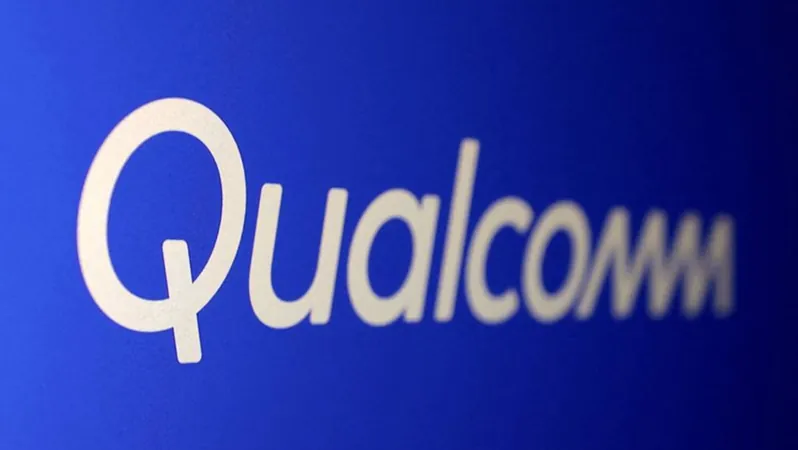
Will Qualcomm’s Ambitious Bid for Intel Spark Antitrust Storms?
2024-09-23
Overview
In a game-changing move that could reshape the semiconductor landscape, Qualcomm is rumored to be eyeing a takeover of Intel, a deal that analysts warn could ignite significant antitrust concerns across the globe. This potential acquisition, if realized, would unite two powerhouses in the chip industry, marking it as the largest transaction ever in this sector. The implications for the smartphone, personal computer, and server markets could be monumental, but the resulting market dominance is likely to face intense regulatory scrutiny.
Market Reaction
Recent reports have spurred a notable rise in Intel's stock, which jumped 3 percent during pre-market trading on Monday, following speculation of Qualcomm's initial approach to the beleaguered chipmaker. Meanwhile, Qualcomm's share price saw a decline, underscoring the uncertainty surrounding the potential deal.
Expert Opinions
Bob O'Donnell, founder of TECHnalysis Research, remarked, "The rumored deal between Qualcomm and Intel is intriguing and makes sense given their complementary product lines. However, the feasibility of this actually unfolding appears quite low. It is improbable that Qualcomm would be interested in acquiring all of Intel, especially considering the complexities of disentangling its foundry business from the product division."
Intel's Current Challenges
Intel, once a titan of the semiconductor industry, is grappling with significant challenges, with its market valuation slipping below $100 billion for the first time in over 30 years. The company has faced mounting losses, particularly in its contract manufacturing unit, as it seeks to compete with industry leader TSMC. Moreover, Intel's missed opportunity to invest in the burgeoning generative AI sector has worsened its predicament.
Qualcomm's Position
Qualcomm currently boasts a market capitalization of approximately $190 billion, significantly larger than Intel's. Analysts project that Qualcomm, with around $7.77 billion in cash reserves as of June, would likely structure the deal primarily through stock, raising potential concerns regarding dilution for current Qualcomm investors.
CEO's Strategy
Under CEO Cristiano Amon, Qualcomm is pushing to diversify its offerings beyond smartphone chips, planning to delve into automotive and PC markets. Yet, the company remains heavily dependent on the mobile sector, which has underperformed due to a cooldown in demand post-pandemic. Reports indicate that Amon is personally overseeing negotiations with Intel, exploring various deal-making options.
Previous Acquisition Attempts
This isn't Qualcomm's first attempt at a major acquisition; in 2016, it made a $44 billion bid for NXP Semiconductors but was forced to retract after failing to secure approval from Chinese regulators.
Challenges Ahead
Complicating matters further, Qualcomm lacks the expertise to manage a semiconductor foundry, having never operated its own chip manufacturing facility. Instead, Qualcomm relies on external partners, such as TSMC, for production. Given this, analysts like Stacy Rasgon of Bernstein express skepticism about Qualcomm's potential effectiveness as a steward of Intel's foundry business, which recently secured Amazon as a major customer.
Government Interests
The foundry segment is pivotal to the U.S. government’s ambitions to bolster domestic semiconductor manufacturing. Intel has secured approximately $19.5 billion in federal grants and loans under the CHIPS Act to expand its manufacturing footprint across several states. Some analysts suggest that Intel would prefer to pursue investments from external parties over a complete sale, citing a recent strategy to increase the independence of its foundry operations. Notably, reports have surfaced suggesting that Apollo Global Management has offered to invest up to $5 billion in Intel.
Possible Segments for Acquisition
Alternatively, Qualcomm might explore acquiring only specific segments of Intel's business, such as its PC design unit, which would allow both companies to retain significant independence and reduce the likelihood of regulatory pushback.
Conclusion
As speculation swirls, all eyes are on Qualcomm and Intel, as well as the shadowy figures of regulators poised to weigh in on what could be one of the biggest shake-ups in tech history. Will this bold move usher in a new era of innovation or spell disaster for both companies? The future remains uncertain, but one thing is clear: in the cutthroat world of technology, the stakes couldn’t be higher.





 Brasil (PT)
Brasil (PT)
 Canada (EN)
Canada (EN)
 Chile (ES)
Chile (ES)
 España (ES)
España (ES)
 France (FR)
France (FR)
 Hong Kong (EN)
Hong Kong (EN)
 Italia (IT)
Italia (IT)
 日本 (JA)
日本 (JA)
 Magyarország (HU)
Magyarország (HU)
 Norge (NO)
Norge (NO)
 Polska (PL)
Polska (PL)
 Schweiz (DE)
Schweiz (DE)
 Singapore (EN)
Singapore (EN)
 Sverige (SV)
Sverige (SV)
 Suomi (FI)
Suomi (FI)
 Türkiye (TR)
Türkiye (TR)